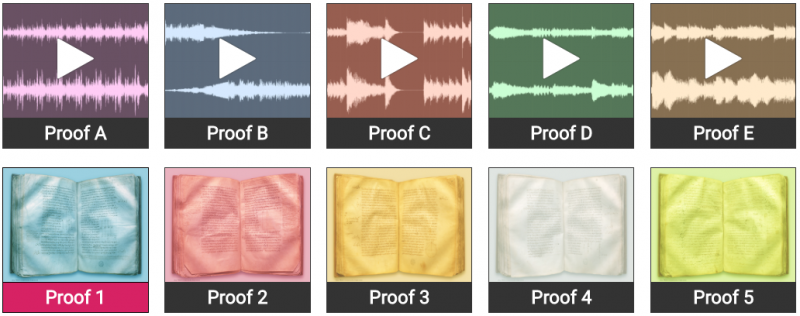Today is the launch of the Kickstarter for 21X, a new card game from board game studio Naylor Games, which describes itself as ‘the Countdown numbers game meets blackjack’. The creators sent us a copy to play with, and I took it along to Manchester MathsJam for a road test. (Read on for info about how you can win a copy!)
You're reading: Posts Tagged: Marcus du Sautoy
Maths at the Cheltenham Science Festival
The programme for this year’s Cheltenham Science Festival has now been released, and tickets go on sale to members today (general booking opens next Wednesday). We asked Cheltenham local and science festival regular Martin Whitworth to send us his pick of the events for the mathematically inclined.

Festival season will soon be upon us. In a recently announced programme of over 200 events, the 2019 Cheltenham Science Festival includes many that will be of interest to the mathematically-minded, including events by maths presenters Marcus Du Sautoy, Ian Stewart, Matt Parker, Katie Steckles, Zoe Griffiths, Ben Sparks, Kyle D Evans and Hannah Fry.
The Sound of Proof

Marcus du Sautoy has tweeted about a mathematics and music project he’s involved in, called The Sound of Proof. Five classical proofs from Euclid’s Elements have been interpreted by composer Jamie Perera into musical pieces, and they’ve put together an app/game to see if you can work out which one corresponds to which.
They’ll be announcing the results at an event as part of Manchester Science Festival in October. The project is a collaboration with PRiSM, the research arm of the Royal Northern College of Music in Manchester.
Not mentioned on The Aperiodical this month, May 2016
Here are a few of the stories that we didn’t get round to covering in depth this month.
Turing’s Sunflowers Project – results
Manchester Science Festival’s mass-participation maths/gardening project, Turing’s Sunflowers, ran in 2012 and invited members of the public to grow their own sunflowers, and then photograph or bring in the seed heads so a group of mathematicians could study them. The aim was to determine whether Fibonacci numbers occur in the seed spirals – this has previously been observed, but no large-scale study like this has ever been undertaken. This carries on the work Alan Turing did before he died.
The results of the research are now published – a paper has been published in the Royal Society’s Open Science journal, and the findings indicate that while Fibonacci numbers do often occur, other types of numbers also crop up, including Lucas numbers and other similarly defined number sequences.
Messiaen’s “Quartet for the end of time”, animated by Simon Russell and Marcus du Sautoy
Marcus du Sautoy has teamed up with animator Simon Russell to create this animatino to accompany Messiaen’s Quartet for the end of time. It’s got all the usual arty maths things in it – the Fibonacci sequence and golden ratio, prime numbers, polygons and polyhedra of all sorts – as well as the less well-trodden sporadic group $M_{12}$. It all comes together quite nicely, though I much prefer the elegant end to the spiky-frenetic start.
There’s a page describing all the maths ideas to be found in the video at Sinfini Music.
via Marcus du Sautoy and Sinfini Music on Twitter
Riemann Hypothesis not proved, part 2
Who could have guessed that this non-story about somebody being out of his depth and quite obviously wrong would get so out of hand? Here’s an update on The Continuing Tale Of The Man Whose Claims Couldn’t Be Verified.
Riemann Hypothesis not proved

Here’s a tweet from Alex Bellos this morning:
BBC claims Nigerian solves Riemann Hypothesis, most famous problem in maths. Surely a hoax! https://t.co/Wkltfkh2P3 https://t.co/UHGy9W8shC
— Alex Bellos (@alexbellos) November 17, 2015
He’s right to be surprised – as reported in Vanguard, a Nigerian newspaper:
The 156-year old Riemann Hypothesis, one of the most important problems in Mathematics, has been successfully resolved by Nigeria Scholar, Dr. Opeyemi Enoch.
Suspicion levels are raised, as the paper also reports:
Three of the [Clay Millenium Prize] problems had been solved and the prizes given to the winners. This makes it the fourth to be solved of all the seven problems.
Unless we missed something, that’s not massively true – the only Millennium Prize problem solved so far is the Poincaré conjecture.